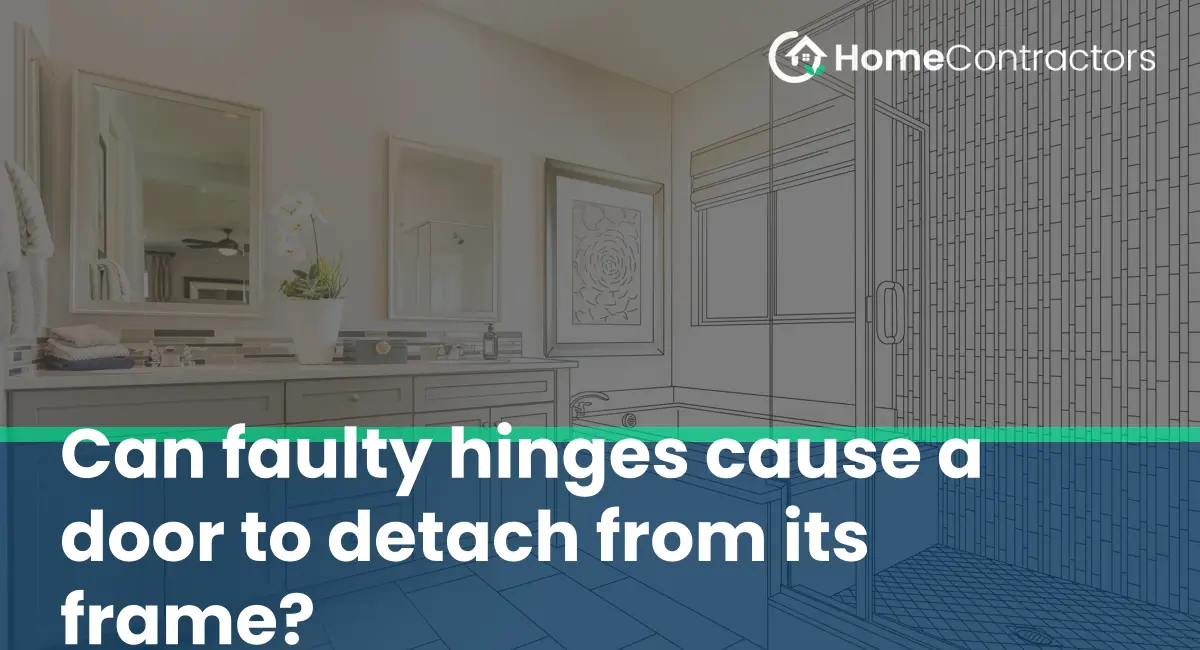One of the most crucial components of any door is the hinges. They play a vital role in maintaining stability, allowing the door to swing open and closed smoothly. However, like any mechanical part, hinges can undergo wear and tear over time, potentially leading to malfunctions. In some cases, faulty hinges can even cause a door to detach from its frame entirely. In this article, we will explore the relationship between faulty hinges and door detachment, examining the common causes and potential solutions.
Understanding Door Hinges and Their Function
Before delving into the connection between faulty hinges and door detachment, it is important to understand the basics of door hinges. A hinge typically consists of two plates, known as leaves, which are attached to the door and the door frame. These plates are interconnected by a hinge pin, allowing the door to rotate along a horizontal axis.
Hinges are pivotal in supporting the weight of the door, preventing it from sagging and providing stability during operation. When functioning correctly, hinges ensure that the door remains aligned with the frame, preventing it from swinging open unexpectedly or rubbing against the floor or adjacent walls.
Common Causes of Faulty Hinges
Several factors can contribute to the failure of hinges, ultimately leading to door detachment. Here are some of the most common causes:
- Wear and Tear: Over time, hinges can become worn down due to regular use. The repetitive motion of opening and closing the door can cause the metal parts of the hinge to weaken, resulting in increased play or looseness. If left unaddressed, this can lead to hinge failure and door detachment.
- Improper Installation: Incorrect installation of hinges can also result in problems down the line. If hinges are not securely attached to the door and frame, they may not withstand the stresses of daily usage. Similarly, if the hinges are misaligned during installation, it can put unnecessary strain on them and lead to premature failure.
- Rust and Corrosion: Moisture and exposure to the elements can cause hinges to rust and corrode. Rust weakens the metal, making it more susceptible to breakages. Corroded hinges can seize up, hindering their ability to provide smooth movement and compromising the door’s stability.
- Overloading: Excessive weight or stress on the door can also strain the hinges beyond their intended capacity. If a heavy object or excessive force is applied to the door, it can place undue pressure on the hinges, potentially causing them to bend or break.
The Consequences of Faulty Hinges
When hinges become faulty, the consequences can range from minor inconveniences to serious safety hazards. If the hinges exhibit too much play or looseness, the door may not close properly, leaving gaps for drafts, insects, or burglars to enter. Additionally, a door that has detached from its frame poses a significant safety risk, potentially leading to accidents or injury if it falls on someone.
Solutions and Maintenance
Regular maintenance and prompt addressing of hinge issues can help prevent door detachment. Here are some recommended solutions and practices:
- Lubrication: To prevent rust and ensure smooth functioning, hinges should be lubricated periodically. Applying a suitable lubricant to the moving parts can reduce friction and prevent excess wear.
- Tightening: If hinges become loose, they should be tightened immediately. Regularly checking the hinge screws and ensuring they are securely fastened can prolong the life of the hinge and prevent detachment.
- Replacement: In cases where hinges are severely damaged or corroded, they may need to be replaced entirely. Upgrading to high-quality hinges can ensure greater durability and reduce the likelihood of future problems.
- Professional Inspection: It is advisable to have a professional inspect and maintain your door hinges regularly. They will have the expertise to identify potential issues and recommend appropriate solutions, ultimately ensuring the reliable operation of your doors.
Faulty hinges can indeed cause a door to detach from its frame, posing various problems ranging from inconvenience to safety hazards. Regular maintenance, including lubrication and tightening of hinges, can mitigate the risks associated with hinge failure. Moreover, professional inspection and potential replacement of damaged hinges are crucial to preventing any major door-related issues. By prioritizing the care and maintenance of hinges, one can ensure the continued functionality and safety of their doors.
